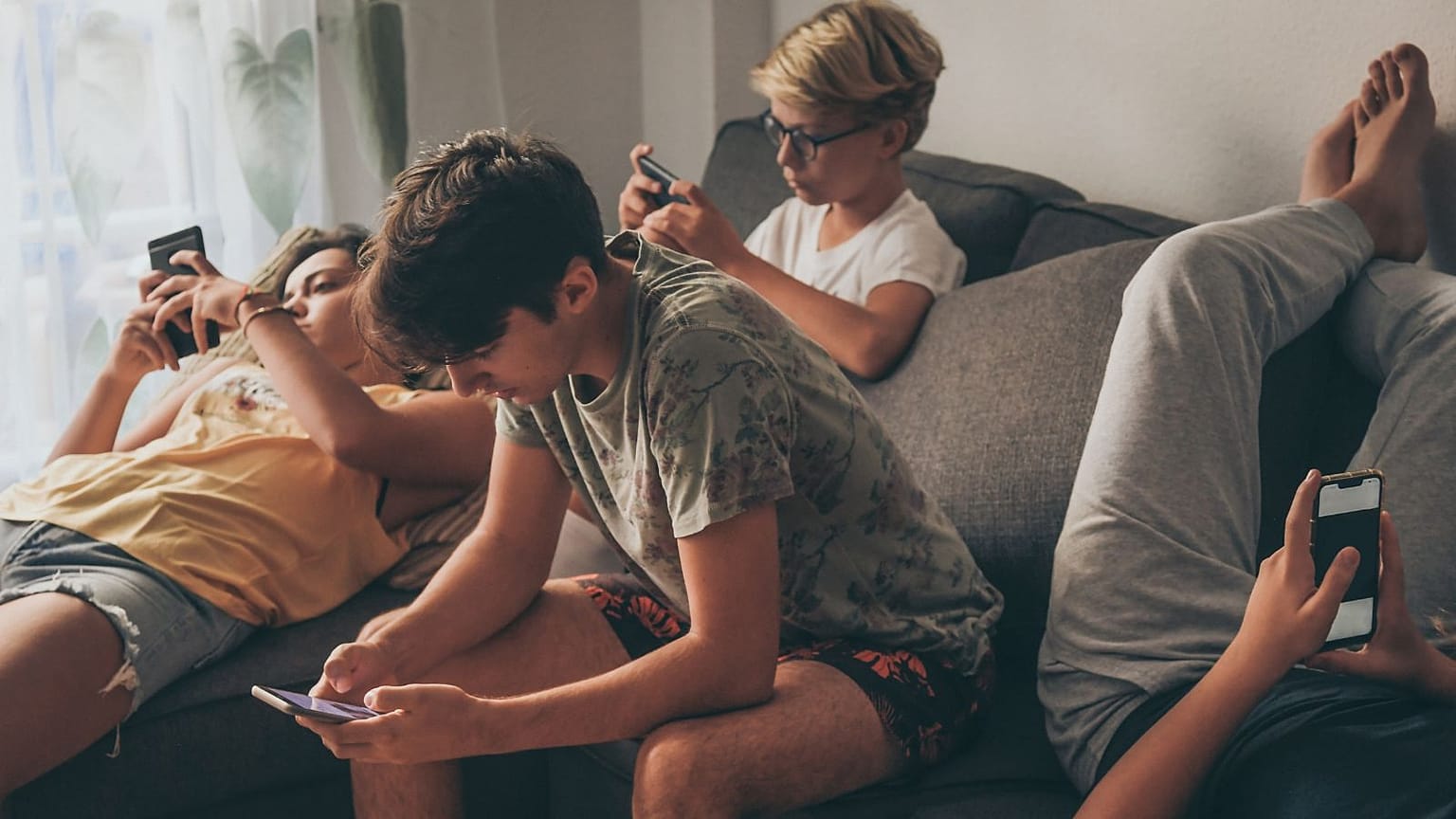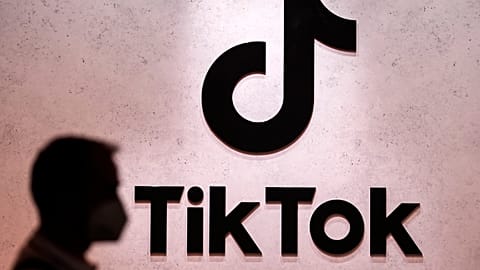An increased number of searches on TikTok has raised the question of whether Google will soon become obsolete.
Since they’ve been old enough to feel embarrassed by their elders, Generation Zers have made many things we once used to love obsolete.
 ADVERTISEMENT
ADVERTISEMENT
 ADVERTISEMENT
ADVERTISEMENT
Take the side part haircut, the crying laughing emoji, and skinny jeans; just a few of the many relics of the recent past that zoomers have decided - often rightly - that we should just leave behind.
But is now the time for Google, the number one search engine, to suffer a similar fate and disappear into oblivion?
For Gen Z, TikTok is the place to turn to when you’re looking for answers. Where to find cute cafes in town? What is the best Italian restaurant in London? What exhibitions are on in Paris? How to write a cover letter? How to have a clean break-up?
While these might be questions boomers and millennials would ask Google and find on WikiHow or Tripadvisor, Gen Z has been found to seek advice from the same app that bursts with dance trends and pop music.
Already in 2021, web security and performance company Cloudflare reported that the video app had overtaken Google by the number of searches on its platform.
With over three million downloads worldwide and a growing audience, the use of TikTok as a search engine has rapidly been rising, to the point that many are asking whether it might eventually dethrone Google and end its decades-long supremacy.
At the Brainstorm Techconference in the summer of last year, Google senior vice president Prabhakar Raghavan said that the company’s studies have found that “something like almost 40 percent of young people, when they’re looking for a place for lunch, they don’t go to Google Maps or Search. They go to TikTok or Instagram”.
In this case, Raghavan didn’t appear necessarily concerned about what Gen Z’s habits mean for the future of Google, instead acknowledging that the journey towards gathering information online started “in different forms than before, visually rich forms”.
As new users come to an age where they will start searching for things online on TikTok and Instagram, Google will have to “conjure up completely new expectations” taking an “altogether new technology,” as Raghavan said, to keep up with competition from the two social media apps.
There are many perks to using TikTok as a search engine: up-to-date and quickly-delivered information (usually contained in less than a minute videos); an ever-evolving algorithm that knows you well; and generally engaging content.
According to several media interviews held with users, Gen Z finds information on TikTok to be more personalised – and thus more “real” and valuable – than a search result on Google.
“The platform's algorithm is designed to provide users with content that they are likely to be interested in, based on their previous interactions,” Abdul Rahim, an IT professional and the founder and CEO of Software Test Tips, told Euronews Next.
“This personalisation has resulted in a highly engaging and entertaining user experience that keeps users coming back for more. Additionally, TikTok has become a hub for DIY tutorials, fashion, and beauty tips, and more, making it an excellent source for users to discover new products, ideas, and trends”.
But these exact same perks could also be seen less positively. TikTok’s algorithm, by keeping users on the platform for as long as possible, makes it harder to leave the app to fact-check information.
The platform, owned by the Chinese company ByteDance, doesn’t – as yet – penalise misinformation on its platform, prioritising instead user engagement and popularity.
Personalised search results could make our echo chambers even tighter, and more suffocating.
But while TikTok’s popularity is growing and the app is chipping away at Google’s popularity, it seems unlikely that it will entirely replace the world’s number one search engine.
“While Gen Z tech users might rely on TikTok for all kinds of searches, to suggest that TikTok will surpass Google as the number one search engine in the world, let alone make Google obsolete, is a step too far,” said Nick Swan, tech expert and Founder of www.SEOTesting.com, a tool helping customers increase search traffic from Google.
“It’s true that younger people are favouring video-based social media platforms and, as a result, savvy social media posters are able to position themselves as ‘micro-influencers’ on platforms such as TikTok. How? Offering simple yet practical online advice – awfully similar to searching a subject on Google,” Swan added.
“Once viewed as a platform to share videos of trending dances, you can now find videos simplifying an arbitrary housing act that you hadn’t heard of before TikTok”.
But Google still has a lot going for it, said Hannah Campbell, co-founder and managing director of digital marketing company One Twelve Agency.
“'I don’t think it’s possible for Google to be completely replaced by TikTok,” she said.
“As much as TikTok’s search usage for Gen Z is a powerful changing tide, there are still multiple generations older than Gen Z who will never follow this trend.
“We also shouldn’t forget that Gen Z are using Google too; TikTok just isn’t as good for researching hard information or recommendations specific to a certain topic or geography”.
Google has also built its reputation over two decades, and is generally considered more trustworthy than information found on TikTok. The search engine is also quicker at gathering information as it happens, whereas TikTok lags behind.
What’s more, Google is also constantly trying to improve and keep up with competition.
“It’s wise to avoid thinking of Google as a constant. While the interface has barely changed since its Beta version in 1998, the technology and algorithms behind the interface are constantly adjusting and updating around the needs of users and advertisers,” Campbell said.
“If, for example, TikTok started overtaking on search due to users getting bored of too many promoted posts on Google, then it’s likely Google will tweak their algorithm to alleviate this issue,” he added.
“If Google can make sure that its users will always feel satisfied that they’ve learned enough about a topic to help achieve a specific goal after reading a website’s content, especially without needing to search again for other information if possible, then Google will comfortably remain as the number one search engine in the world,” Swan said.
Google might try to catch up with TikTok by becoming a little more like the video app. In September last year, Google announced new features that will make searching a quicker and more visual experience for users.
The search result we are used to – 1 of 1,384 pages of text and black-on-white links – might soon become a thing of the past – like taking selfies from above and declaring which Hogwarts houses we belong to.
“Google will continue to have the most information on how people search, understanding how they process information and human behaviour, and with their updates to create more dynamic results, they will remain the single source for pulling together information from multiple touchpoints,” said Marina Glavan, Senior Strategist at marketing agency AMV BBDO.
“Until TikTok can act as a one-stop shop for all information, and creators can understand user queries as well as Google can, the platform will struggle to overtake Google completely”.


















